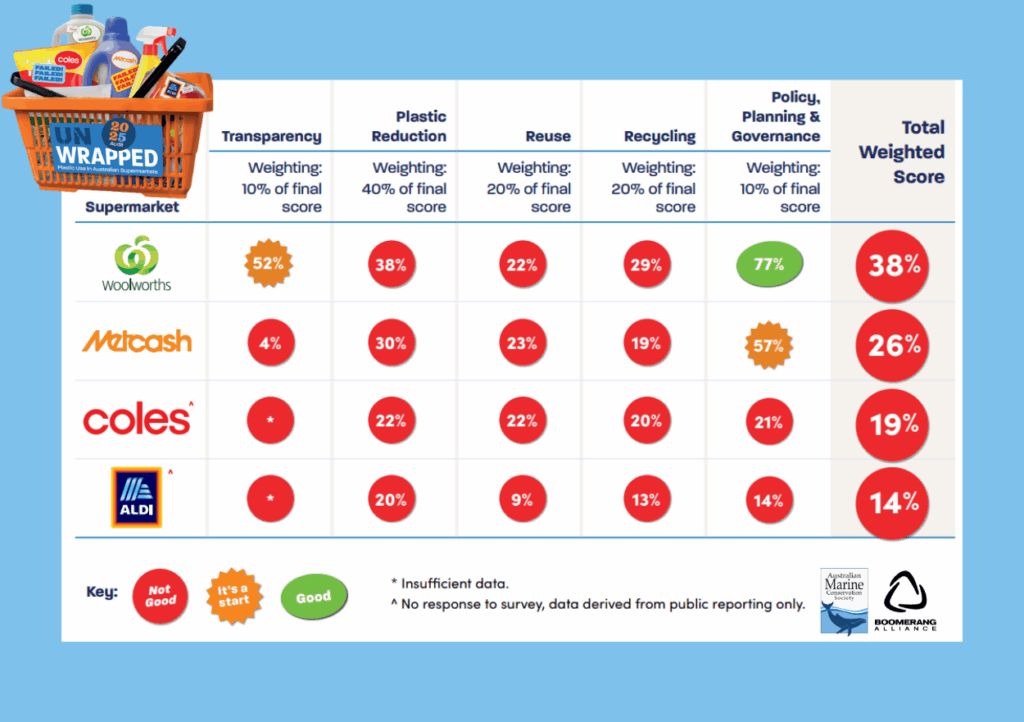Supermarkets in Australia are a $144.3 billion industry, responsible for the majority of household packaging.
See which of the big brands have improved their rank, and which are still lagging behind, in the third audit of Australian supermarket plastics use.
For too long, supermarkets have not been held accountable for the amount of plastic packaging they generate, pumping out difficult-to-recycle packaging at the expense of our environment. With no legislated mandate to curb plastic production, supermarkets have largely avoided public accountability relating to the amount of plastic on their shelves.
To help you make sustainable choices about where you shop, we’ve audited Australia’s biggest supermarket brands on their plastic reduction efforts.
